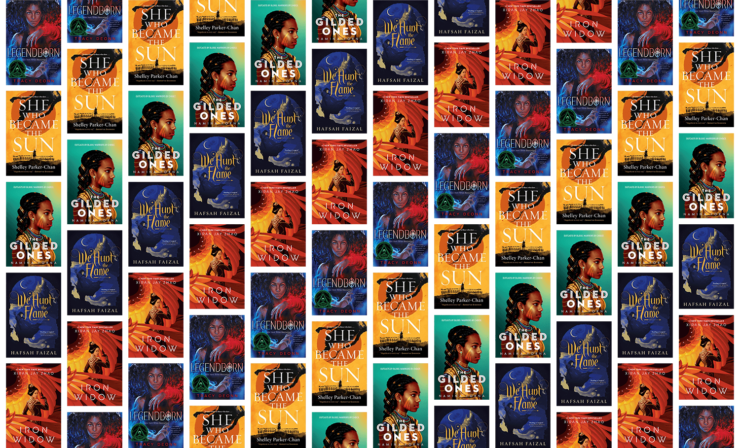Like many readers of fantasy, the Lord of the Rings trilogy played an important role in my love for the genre. As a teen, I would re-read the books and appendices multiple times like a sort of pilgrim’s ritual. Yet, when I think of fantasy what comes immediately to my mind isn’t elves or orcs but dueling swordsmen atop lush bamboo forests, gilded imperial palaces where secrets snake around corridors, and midnight alliances formed on darkened rooftops. I think of wuxia heroes anchored by the desire to avenge their slain families because filial piety and honor go hand in hand, and of romantic tension and longing conveyed with barely a glance and often through combat. And I think of the warring desires of duty and freedom, of the fight and balance between light and darkness, and of the divine cousins, fate and destiny.
It’s unsurprising that my debut novel, Jade Fire Gold, contains all of these. And even less surprising that I was inspired by the stories that filled my childhood in Singapore even before I entered the Shire and met my first hobbit. For me, the names “Jin Yong” and “Gu Long” came well before “Tolkien”. As kids, my cousins and I would pretend that we were wandering xiake (martial heroes) fighting for justice, xiuzhe (cultivators) saving villagers from demons, prodigies prophesized to change the world, and warriors daring to oppose our fates. We were Asian kids with dollar-store towels wrapped around our shoulders like superhero capes, using chopsticks as weapons, and brandishing old bamboo backscratcher canes in lieu of swords. We were the protagonists, the heroes. We were the chosen ones.
Across cultures, there is a certain universality to some storytelling tropes and many familiar ones are found in wuxia. In my book, there are two protagonists who embody the Chosen One archetype—with a twist. One is blessed with a power so immense it becomes a curse; the other, anointed by Heaven’s mandate, has that destiny snatched away. Sometimes, a well-loved trope is deemed well-worn when BIPOC and marginalized authors decide to include it in our stories, but I would like to believe that we are moving away from that way of thinking toward a position where tropes are reimagined and refreshed with each rendition. Without further ado, here are my recommendations for five SFF books with BIPOC protagonists that offer a fresh lens to the Chosen One trope.
Legendborn by Tracy Deonn
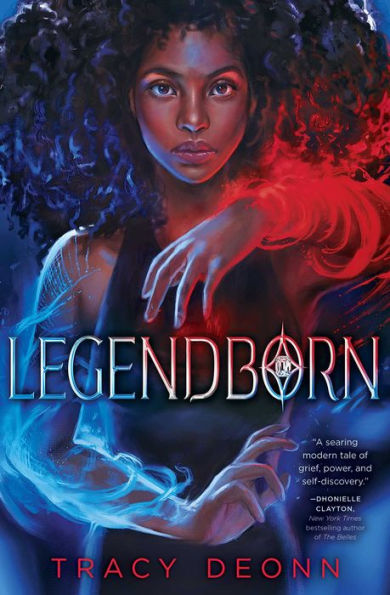
As she grapples with her mother’s recent death, Bree Matthews encounters the usual hijinks one might expect on a college campus: a daring initiation on the first night, a hot boy, and secret societies. Except there are demons trying to kill her and the hot boy keeps trying to erase her memories. And the secret society? It’s the contemporary equivalent of the Order of the Round Table that is made up of mostly privileged white kids. To find out the root of her own unique magic, Bree infiltrates the Order and discovers trauma from generations past. Perhaps the most quintessential chosen one narrative is that of King Arthur: pick a (white) boy, give him powers that make him special, imbue him with destiny. In Legendborn, Deonn grabs this narrative—and legend—by the throat and wrings it into an interrogation of race and legacy by resituating the myth in modern-day North Carolina against the backdrop of historical slavery in the South, and by re-centering it on a Black girl. A new chosen one narrative is formed, one that takes an emotionally gutting look at the Black experience.
She Who Became the Sun by Shelley Parker-Chan
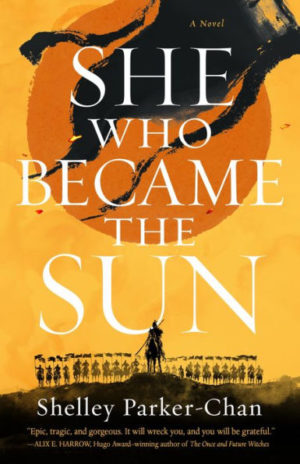
What happens if the chosen one dies in the first chapter? In this profound historical reimagining of the rise of Zhu Yuanzhuang, founder of the Ming Dynasty, Parker-Chan presents this very question to us as they tell a brilliant, subversive tale of genderqueer identity. Two siblings born in a time of great famine: a boy given the fate of greatness; his sister, told that she is nothing. When the boy dies, his sister, Zhu, chooses to survive, and it is pure grit that pushes her forward to take her brother’s name and intended place in the world. The raw ambition of her want is a beautifully painful sight to behold as she maneuvers her way to power at each step despite her origins of her birth, fate, and gender. Zhu isn’t the chosen one because of a prophecy or blessing, she simply is because she chooses to be.
We Hunt the Flame by Hafsah Faizal
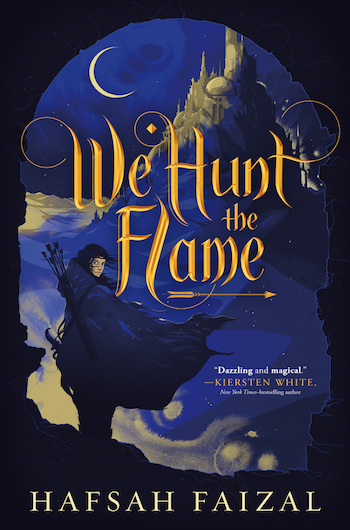
Inspired by ancient Arabia, the book takes place in a divided kingdom where a mysterious, cursed forest grows each day. Only one person can enter the Arz and find their way out again with their mind and body intact—the Hunter. Except, the hunter is actually a huntress. Even though she hunts to feed her people, Zafira is forced to disguise herself as a man for fear of retribution and rebuke. Her ability to find her way through darkness in a land where magic has been lost distinguishes her from others and sets her up as a chosen one who can restore equilibrium and peace. Anchored by Faizal’s masterful and emotive storytelling, Zafira’s journey to discovering her true self is marked with quite a few surprises, and a twist or three to the Chosen One trope.
Iron Widow by Xiran Jay Zhao
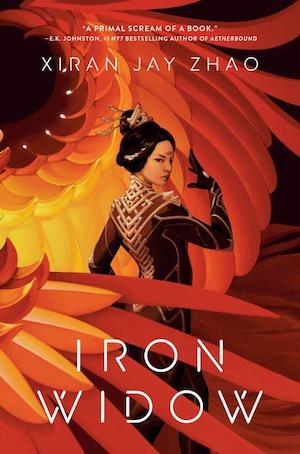
Described as “Pacific Rim meets The Handmaid’s Tale in a polyamorous reimagining of China’s only female emperor”, Wu Zetian, Zhao’s sci-fi mecha novel is a feral scream from the throat of an unapologetically feminist protagonist. Zetian’s nearly unhinged but extremely relatable rage is unleashed through her use of her immense and much-feared powers. Her thirst for revenge upends her fate as one of the doomed concubine-pilots that are forced to pair up with male pilots to power up giant robots in mecha alien battles, causing chaos in the misogynistic society that she lives in. Zetian isn’t your Chosen One, she belongs to herself and herself alone. This imaginative tale is one heck of a wild ride, but more importantly, it’s an unexpectedly cathartic read for anyone who needs a breather from the patriarchy.
The Gilded Ones by Namina Forna
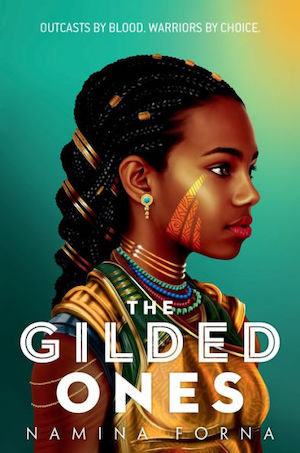
When Deka’s blood runs gold during a coming-of-age ritual, she is deemed impure and a demon. What makes her special in this instance is exactly what causes her to be ostracized and brutally murdered again and again. She doesn’t die, however, and is finally rescued by the mysterious White Hands who brings her into a society of female warriors who share the same gold blood as Deka. This book is at times hard to read, but only because the heinous acts afflicted onto young female characters also happen in our world. Drawing from her experiences as a child in Sierra Leone, Forna tackles themes of gendered violence and trauma in this powerful, gut-wrenching young adult fantasy set in a West-African inspired world.
Buy the Book
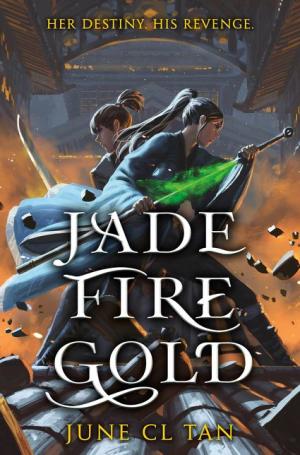

Jade Fire Gold
June CL Tan grew up in Singapore where she was raised on a diet of classic books and wuxia movies, caffeine and congee. After obtaining three degrees, she decided she had enough of academia. Thankfully, those degrees were somewhat related to telling stories and now, she resides in New York City, writing under the watchful eye of her crafty cat. Jade Fire Gold is her debut novel.










